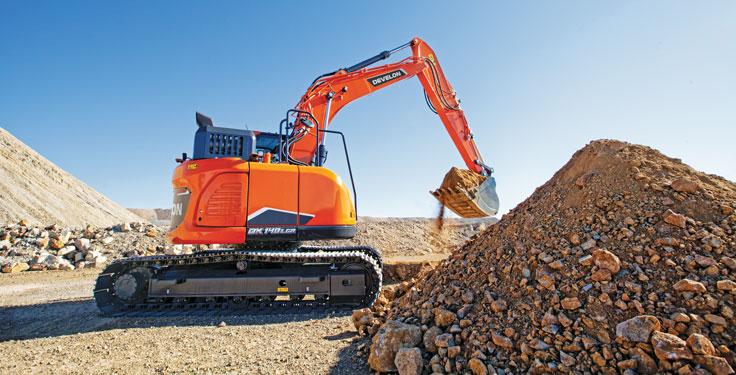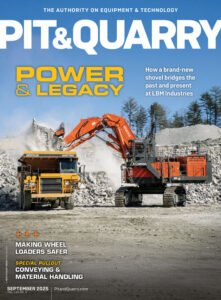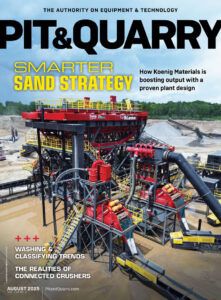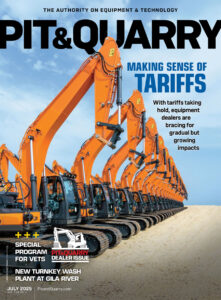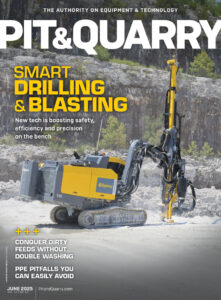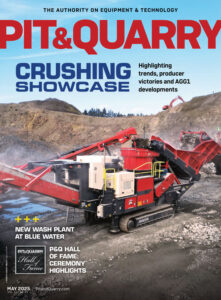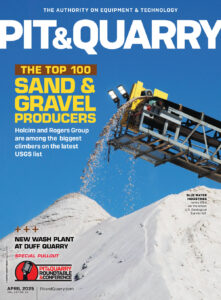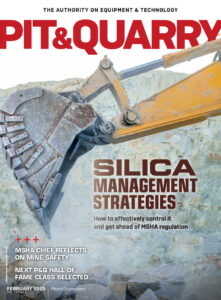3. Check the undercarriage
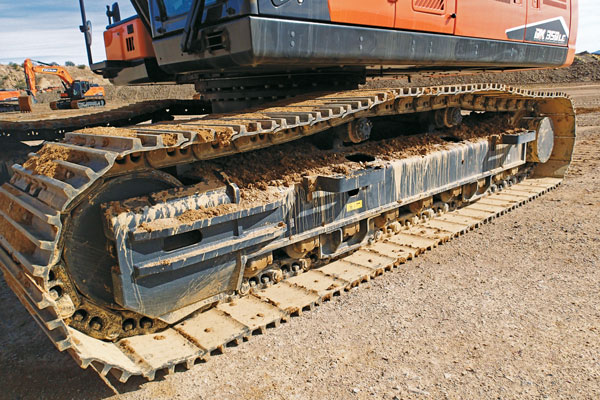
The excavator’s undercarriage is subjected to heavy loads, abrasive materials and uneven terrain in quarry operations. To optimize performance and minimize premature wear, it’s essential to regularly check track tension and adjust it to the manufacturer’s specifications.
It’s also crucial to inspect the rollers, idlers, sprockets and track shoes. Any indication of wear, damage or misalignment should be promptly addressed to prevent further damage.
“Maintaining a clean undercarriage, free from debris, is vital to safeguarding track components from abrasive materials and minimizing wear,” Sherman says. “Regularly clearing mud, rocks and other debris from the undercarriage and track links helps prevent buildup and reduces the risk of damage to rollers, idlers and sprockets. Damage to these critical components can result in reduced machine performance, increased wear, risk of failure of the undercarriage system, costly repairs and safety hazards.”
4. Inspect the hydraulic system
The hydraulic system is responsible for digging, lifting and moving heavy loads. Regular inspection of hydraulic hoses, seals and connections is necessary to detect leaks, prevent system contamination and maintain optimal hydraulic fluid levels and pressure.
“Inspecting hydraulic fluid levels and periodically analyzing fluids to monitor contamination levels can help prevent equipment damage and maintain the hydraulic system,” Sherman says. “Also, proper hydraulic fluid temperature is essential, especially in hot summer conditions. Overheating of hydraulic fluid can lead to reduced viscosity, decreased lubrication and accelerated wear.”
5. Examine the electrical system
Electrical components power lighting, instrumentation, controls and auxiliary systems. Elevated temperatures can expedite the wear of these parts, including wiring insulation, connectors and electrical insulation.
“Inspect electrical connections, terminals and wiring regularly for any indications of wear, corrosion or damage,” Sherman says. “This proactive approach helps prevent electrical malfunctions and potential safety hazards.”
The heat can also affect battery performance, causing the battery to lose capacity more quickly than it would at lower temperatures. Inspect the battery terminals for corrosion, and check battery fluid levels to maintain battery life and prevent starting problems or electrical system failures. If there is corrosion, disconnect the battery and clean the terminals with a brush or a mixture of baking soda and water.
6. Evaluate safety equipment
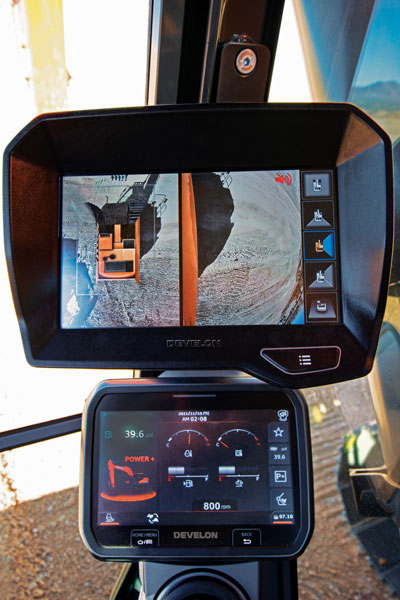
Excavator operators working in quarries during the summer months must adhere to safety regulations to ensure a safe and secure working environment.
“Check safety features such as rollover protection structures, falling object protective structures and seat belts to make sure they are in good condition and functioning properly,” Sherman says. “By inspecting these components and adhering to safety regulations, we can maintain a safe working environment for everyone.”
It’s also a good idea to inspect air-suspension seats and cooled seats, which help enhance operator comfort during quarry work.
7. Promote operator training
Properly trained operators are essential to maximize equipment performance, ensure safety and minimize downtime.
“All quarry excavator operators should be trained on summer-specific maintenance procedures, as well as how to recognize signs of equipment stress or malfunction,” Sherman says. “Training should include basic excavator operation, including machine controls, functions and operating procedures specific to quarry applications.
“In addition, they should be aware of safe work practices and communication protocols with other personnel and equipment operators,” he adds. “Operators should be familiar with safety features like rearview cameras and around-view monitor camera systems if the machine is equipped with these technologies.”
Final thought
By prioritizing maintenance, operators can work with confidence in the summer months, maximizing their productivity and profitability at quarries.
Allison Grettenberg is PR and content strategy specialist at Two Rivers Marketing.

